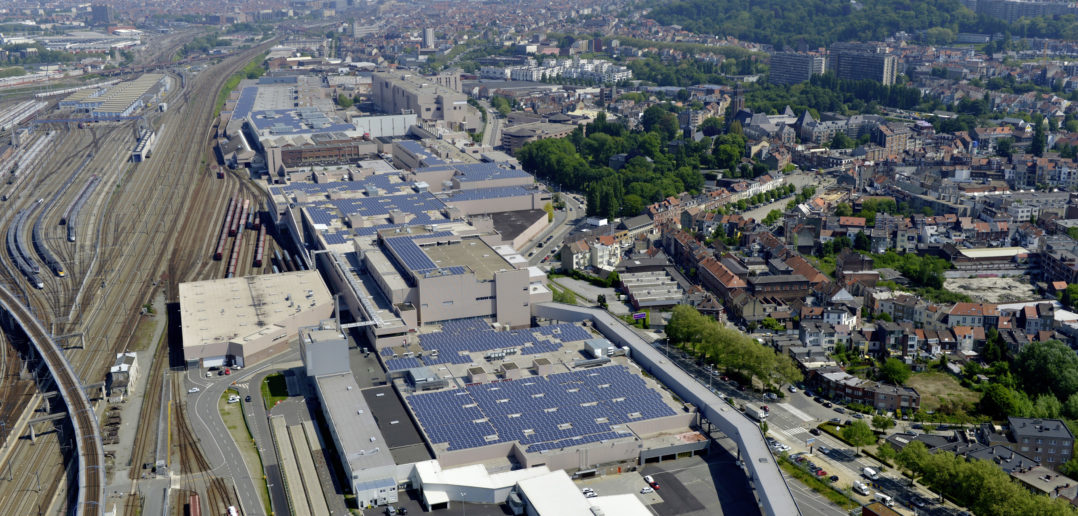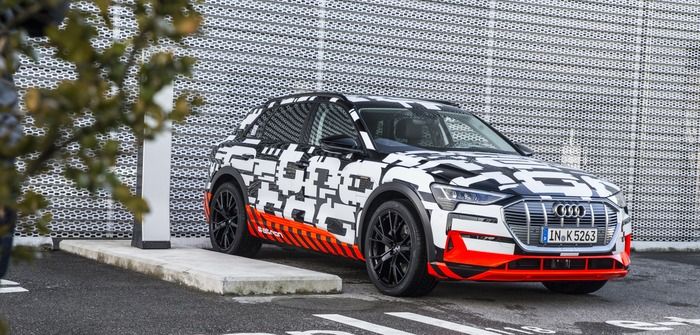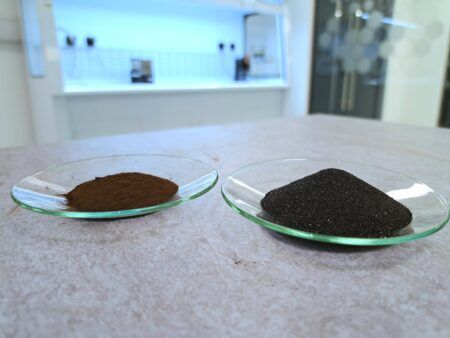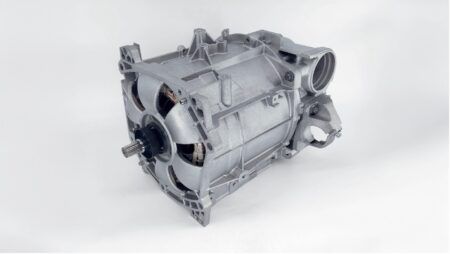Audi Brussels, which will produce the OEM’s first series production all-electric model, has achieved ‘CO2-neutral site’ status – a world-first for a high-volume production plant in the premium segment. The status has been awarded by the Belgian testing company Vinçotte, and takes into account all production processes and all other emissions generated at the plant.
Audi Brussels will start manufacturing the auto maker’s first all-electric series-produced model before the end of this year, and the German OEM is keen to ensure resource-conserving production for its electric SUV – the series version of the Audi e-tron.
“Our first electric car is also the first car in our core competition that is completely climate-neutral in production. We avoid any waste,” said Peter Kössler, member of the board of management for production and logistics at Audi.
“In addition, we are working hard to make all our factories in the Group even more sustainable. We intend to gradually supply our plants with green electricity. And last year, we were the first company in Germany to make all domestic rail transport climate-neutral.”

The CO₂-neutral status of the plant is the result of three areas of focus. The first is the switch to green electricity – which was undertaken in 2012. Covering a total area of 37,000m², the roofs of the plant buildings have the largest photovoltaic system in the region. This saves the company approximately 17,000 tons of CO₂ per year.
“As the first plant in the Audi Group purely for electric cars, sustainable and environmentally friendly production is particularly important to us,” said Patrick Danau, managing director of Audi Brussels. “We see this as an obligation to society that pays off for all sides.”
The second area is the use of renewable energy to supply heat to the plant and office areas. Thanks to its certified biogas and sustainable energy infrastructure, Audi Brussels reduces CO₂ emissions by up to 40,000 tons each year These first two areas of focus account for more than 95% of the facility’s overall energy needs.
The third focus sees the plant offset further emissions (which cannot currently be avoided via renewable energy sources) with carbon credit projects. These include, for example, emissions caused by company cars.
“In 2014, we were the first premium manufacturer to measure our CO₂ footprint and have it certified. Since then, we have been working steadily to reduce it further,” said Rüdiger Recknagel, head of environmental protection at Audi.
“We are also installing new technologies at all our plants to reduce water consumption, prevent air pollution and improve recycling.”





